At the American Educational Research Association (AERA) annual meeting, Boston College Lynch School of Education and Human Development’s showing was strong. Over 50 Lynch School faculty and students arrived in Philadelphia, PA, in mid-April to share their research, provide insights, and network with other educational researchers at the 15,000-person annual meeting. The theme up for discussion at the 2024 meeting was “Dismantling Racial Injustice and Constructing Educational Possibilities.”
AERA is one of the largest national research societies in education, which “strives to advance knowledge about education” and to use that scholarship to improve education for the public good. Boston College faculty and students were key players in the annual meeting, from paper sessions where researchers presented their findings in front of and alongside their peers to roundtable discussions where groups of professionals interested in the same research topics convened to share ideas.
Check out the complete list of Lynch School awards and presentations given at AERA 2024. Highlighted below are just a few presentations given by our esteemed faculty and talented students.
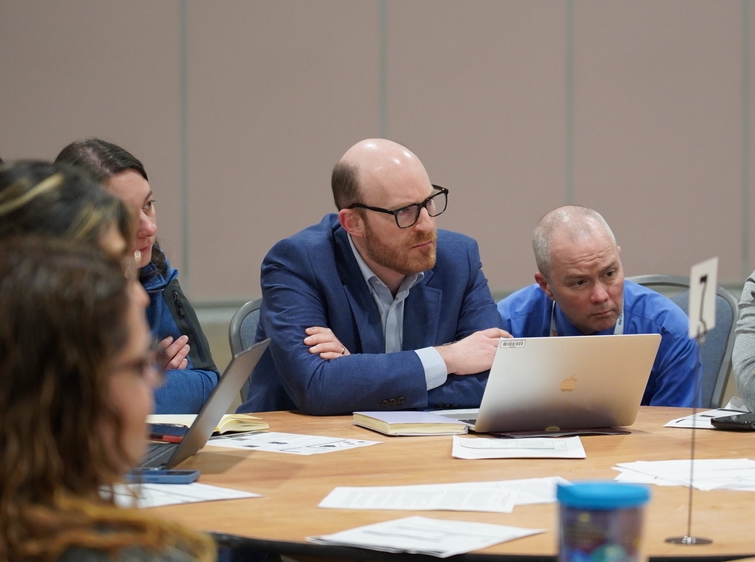
Communities of Practice in Catholic Schools Fostering Pedagogies of Character Formation
In this roundtable session, Professor Martin Scanlan and Assistant Professor Andrew Miller from the Educational Leadership and Higher Education department participated in a roundtable discussion featuring their research on the relationship between Catholic schools and charter schools. In their paper, the professors found that opening a charter school near a Catholic school results in a negative impact on Catholic school enrollment and increases the likelihood that the school will close. Their research aimed to shed light on this potential factor contributing to the concerning pattern observed in Catholic schools, which have seen a more than 40% decline in enrollment over the past 20 years.
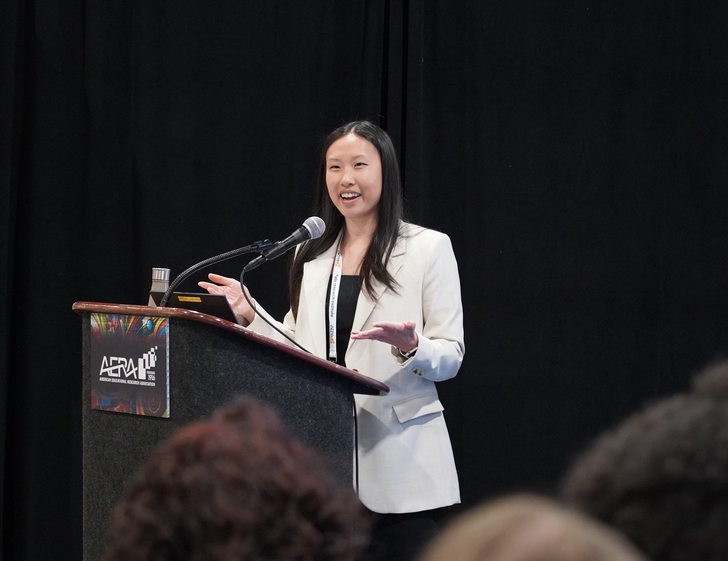
Safety, Risk, and Place-Making: Rehabilitating “Safe Space” as a Threshold Condition for Transformative Higher Education
Samantha Ha DiMuzio ’24 (Curriculum and Instruction) presented her poster at an invite-only session for the “best and brightest” up-and-coming student scholars in education. DiMuzio’s research focused on “safe space,” which has become polarizing and politicized in recent years. Her dissertation contextualized the demand for inclusive spaces on college campuses that allow students to connect, be the most authentic version of themselves, and seek guidance from a community, as necessary within the larger movement toward diversity, equity, and inclusion.
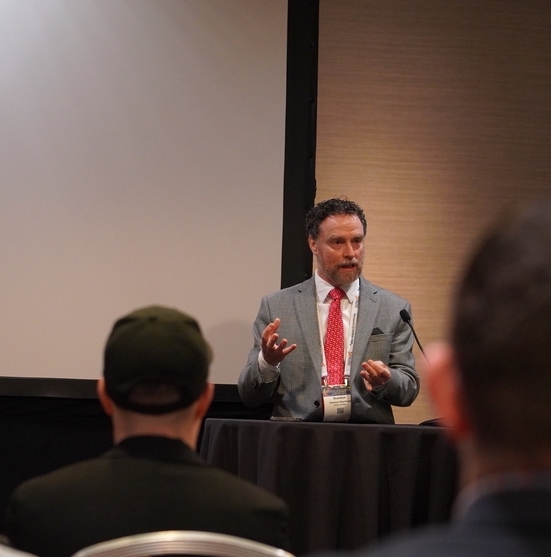
A Journey to Leadership in a University Both Socially Woke and Soulfully Awake
In an early morning session on Saturday, Dean Stanton Wortham summarized his paper titled “A Journey to Leadership in a University Both Socially Woke and Soulfully Awake.” In the talk, Dean Wortham explained that formative education at the Lynch School, and Boston College as a whole, “moves beyond instrumental rationality”—that we attempt to teach students not to do something just to do it, but because there is a greater meaning or purpose behind their actions. He also discussed the holistic nature of formative education, and the importance of understanding that students come into the classroom with their unique emotional states, ethical dilemmas, relationship drama, and other aspects that make them human. Overall, Wortham’s presentation highlighted the benefits of being an institution that focuses on “developing the whole human being,” tying this to the greater mission of the Lynch School and Boston College.
"The Ed.D. program taught me the importance of gathering data to strengthen my arguments and inform analysis and decision-making so as to drive progress in equitable internationalization.”
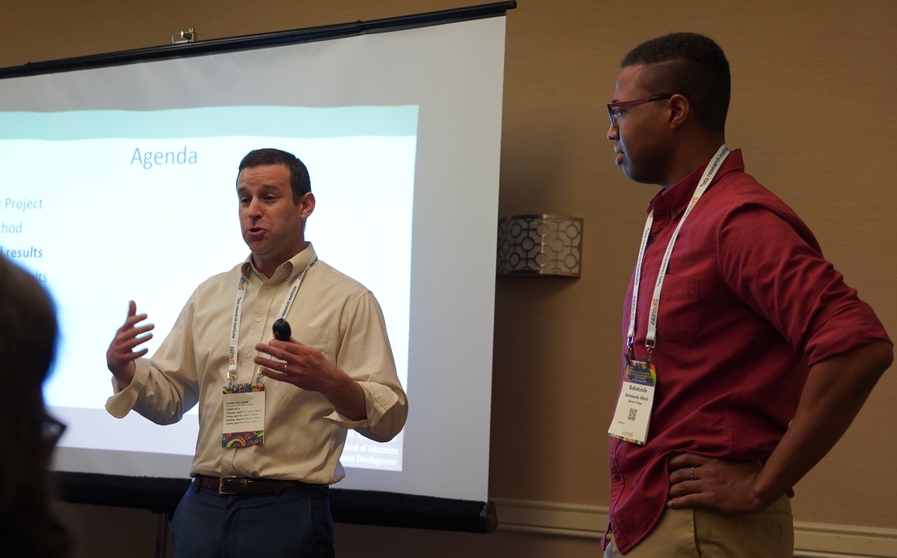
Investigating Advisory as a Space for Nurturing Early Adolescents’ Civic Development and Critical Consciousness
Presented by Professor Scott Seider and doctoral student Babatunde Alford ’26 (Curriculum & Instruction), and co-authored by Brianna Diaz ’26, Trang Le ’24, Sarah Fogelman ’27, Kelly Ward ’24, Hehua Xu ’23, and Kaila Daza ’27, this cross-departmental mixed methods study explored how middle school teachers and students view advisory—a class that focuses on building community and emotional intelligence—as a space for antiracist education. Their research found that students believe that advisory is a valuable space for conversations about racism and critical consciousness, even when their teachers were more resistant.
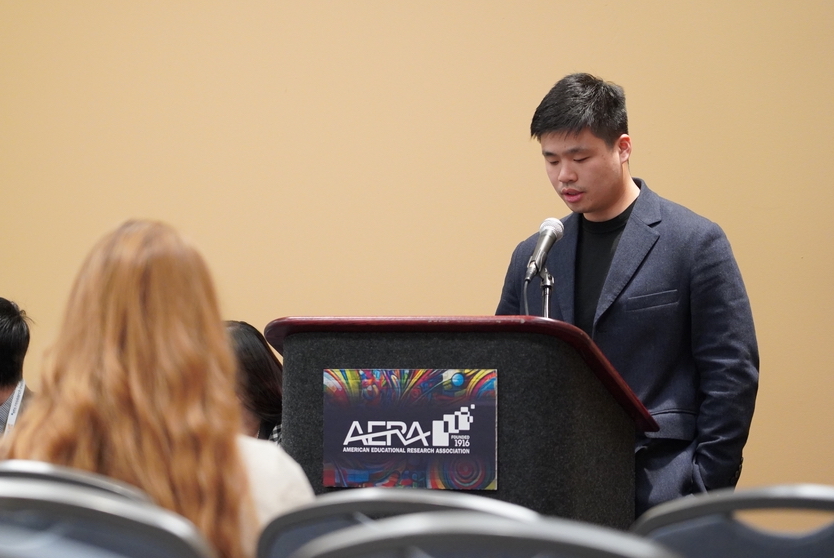
Evaluating Model Fit in Bayesian IRT with Samples
Doctoral student Jihang Chen ’25 (Measurement, Evaluation, Statistics, and Assessment) presented research he co-authored with Associate Professor Zhushan “Mandy” Li on using Bayesian methods to assess the efficacy of educational and psychological instruments. Their study “introduces two novel statistics for assessing model-data fit within Bayesian IRT: posterior predictive model check (PPMC) and a Bayesian variant of the root mean square error of approximation (BRMSEA).” Part of their research included a simulation that compared the performance of these methods, which the research team found valid for evaluating model fit, even with small sample sizes.
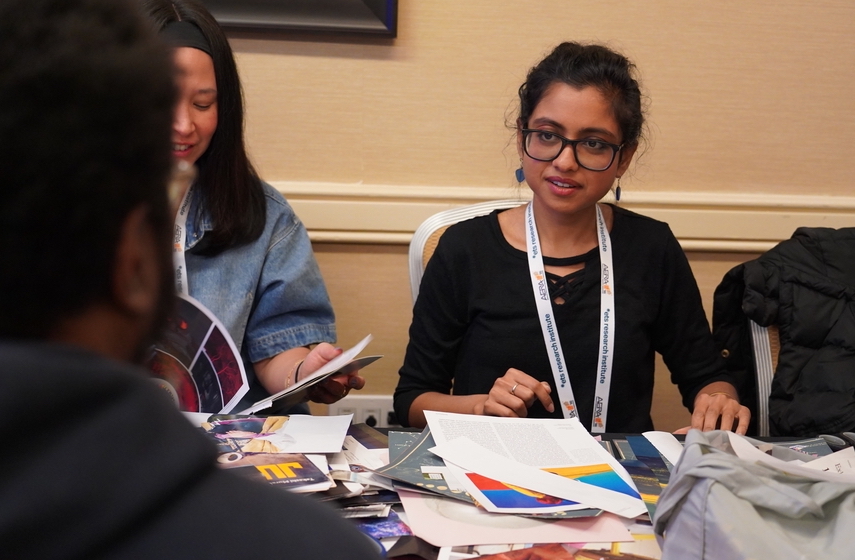
Constructing an ArtSpace to Resist BIPOC Fragmentation and to Construct Possibilities for Educational Justice: An Arts Workshop
Assistant Professor Ankhi Thakurta led an arts-based workshop encouraging creative expression and reflection for BIPOC educators, researchers, and artists. This endeavor attempts to fight against how communities are asked to put aside their full identities within the classroom—a form of self-fragmentation, the researchers argue. Participants were encouraged to construct art reflecting their visions of justice and self while contemplating “the role that arts-based research and teaching might play in resisting that fragmentation [of self] to pursue a vision of educational justice.”

Exploring Teachers’ Ratings of Students’ Math Ability, Students’ Perceptions of Teachers’ Practices, and Student Motivation
Are elementary school students more motivated and capable of succeeding in math class when their teachers believe in them? Associate Professor David Miele sought to investigate the relationship between elementary school students’ math ability and motivation and their teachers’ mentalities around growth and intelligence. His findings were surprising: Miele discovered a positive correlation “between students’ perceptions of teachers’ restrictive practices (e.g., being told to hurry up when struggling with a math problem) in the fall and their ratings of math value in the spring (controlling for baseline).” Ultimately, this study highlights the importance of considering the full context when drawing parallels between teacher attitudes and student outcomes.
Lynch School Reception
Hosted annually as part of the yearly AERA convening, the Boston College Lynch School of Education and Human Development’s reception was widely attended by members of the Lynch School community, including faculty, staff, graduate students, and administration.


